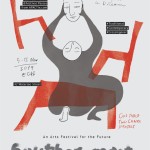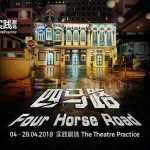“A Roundabout Hypothesis”
Reviewer: Jevon Chandra
Performance: 1 March 2018
Einstein in the Carpark is proudly experimental. Part performance, sculpture, and mash of instructional exercises, the show takes place in Esplanade’s B2-level carpark. Curious objects, timed events, and interactive elements are scattered throughout the expanse of the work – they serve as both invitations and challenges to the audience.
Unfortunately, these provocations are neither engaging nor focused. Copulating with too many ideas, the show feels conceptually promiscuous.
It wants to have fun, but is unwilling to follow through.
Every work (even the free-form ones) is informed by a basic set of assumptions. However, the core assertions here seem superficial. For example, a central premise: that the carpark is a “liminal space”, a place of “transition.”
How so?
To me, the carpark, as suggested by the very word “park” in its name, is a space of rest. It is its own kind of destination, where moving bodies become still.
Under the theory of classical relativity, “absolute rest” does not exist. Objects are never so much as rest as merely perceived to be at rest. A car may “stop”, but once we move away, it too moves away from us.
But the endless gesturing towards relativity – of identity, culture, perception – becomes a crutch. There is a sense that I am being intellectually hoodwinked. The show’s arguments also feel glib. A work can present multiple perspectives, as in a Cubist painting. However, an internal logic, abiding to a conceptual through-line is still required to tie the work together.
Relativity does not substitute the need for internal coherence.
Despite the show’s claims to present multiplicities, the actors’ personas – one embodies western musical theatre and the other eastern Kun opera – are flattened. Post-dramatic theatre, from which the production draws influences, seeks to free actors from being “text-bearers”, so as to depict action and places. Antithetically, the actors in the show are saddled with a different burden: that of being culture-bearers. Meanwhile, audience members are barraged with safety instructions and actively shepherded by on-site staff. All these parameters may be necessary, but I wish they too can be enfolded into the show more critically and thoughtfully.
Thankfully, when the show is truly bold, it is also eloquent. One sequence has a character driving around the carpark, prompting the safety crew to keep everyone off the road. For a while, I became more attuned to my body’s physical properties, my mass and velocity relative to the moving car. In another moment, sound designer Darren Ng tapped onto the acoustic properties of the space. A cacophonous rumble resonated throughout the carpark, as if space-time has been made audible.
Nevertheless, such points of coherence are few, and too far in between. They captivate, but do not manage to clarify.
By the end of the performance, I remain unsure: if this show is an experiment, what is it testing for?
Do you have an opinion or comment about this post? Email us at info@centre42.sg.
ABOUT THE PRODUCTION
EINSTEIN IN THE CARPARK by Emergency Stairs
1 – 4 March 2018
Esplanade B2 Carpark
ABOUT THE REVIEWER
Jevon recently graduated from Yale-NUS College with a Bachelor’s Degree in Arts and Humanities, and currently aspires to be a full-time artist and musician.





